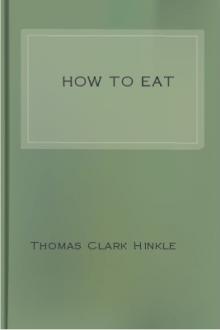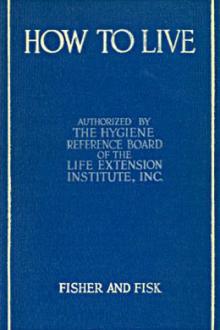Genre Study Aids. Page - 4

lthiness of the mental appetite of a human animal, place in its hands a short, well-written, but not exciting treatise on some popular subject--a mental bun, in fact. If it is read with eager interest and perfect attention, and if the reader can answer questions on the subject afterwards, the mind is in first-rate working order. If it be politely laid down again, or perhaps lounged over for a few minutes, and then, 'I can't read this stupid book! Would you hand me the second volume of "The Mysterious Murder"?' you may be equally sure that there is something wrong in the mental digestion.
If this paper has given you any useful hints on the important subject of reading, and made you see that it is one's duty no less than one's interest to 'read, mark, learn, and inwardly digest' the good books that fall in your way, its purpose will be fulfilled.
BILLING AND SONS, LTD., PRINTERS, GUILDFORD
End of the Project Gutenberg EBook of Feeding the Mind, by Lewis Carro

t, and most sensibly benefit our country at large.
Considerations such as those have combined to determine a publication of my work; fully apprised of the scoffs of pedants, kicks, bites and bruises of critics--but I hope they will find latitude for the exercise of a share of compassion, when I inform them candidly, that a mill and distillery, or still house, were substituted for, and the only college and academy in which I ever studied, and those studies were broken, and during the exercise of my business, as a miller and distiller.
That it contains errors in the diction and perspicuity, I will readily confess--but that it is in substance true, and contains much useful information, I must declare as an indisputable fact. And though the road I travelled was a new one, without compass, chart, or even star to steer by, not even a book to assist me in thinking, or cheer me in my gloomy passage--seeking from those springs of nature, and inherent endowments for consolatory aid--pressing on a frequent

his statements, is hopelessly vain.
It is all undeniable, no doubt; from every side we make out that the criticism of a book--not the people in the book, not the character of the author, but the book--is impossible. We cannot remember the book, and even if we could, we should still be unable to describe it in literal and unequivocal terms. It cannot be done; and the only thing to be said is that perhaps it can be approached, perhaps the book can be seen, a little more closely in one way than in another. It is a modest claim, and my own attempt to assert it will be still more modest. A few familiar novels, possibly a dozen, by still fewer writers--it will be enough if I can view this small handful with some particularity. And I shall consider them, too, with no idea of criticizing all their aspects, or even more than one. How they are made is the only question I shall ask; and though indeed that is a question which incidentally raises a good many others--questions of the intention of the novelist, his c

malady. I have staggered in black despair with staring eyes and bleeding feet and crying soul along this road strewn with thorns and stones. I know what it is to lie awake all night and cry like a baby, with none to know and none to tell me what to do. I know what it is to be tremendously ambitious. Ambition! Ambition! Ah, God of Heaven! How a poor soul suffers who beyond everything else, craves to be able to do something big in this world because he knows he should, yet is held down by this dreadful thing, "nerves!" And how little, how unspeakably little, do physicians, even the greatest of them, know, actually know, how we suffer, unless indeed there be one in whose own body the fiend has sunk deep its talons.
After I had my first breakdown I made up my mind to study medicine because something told me that I was one of those "peculiar" people who just think there is something the matter with them. Is it not strange that with all the advance that has been made in general medicine, little or n

ion is effected is essentially the same in all tissues, but the extent to which different tissues can carry the recuperative process varies. Simple structures, such as skin, cartilage, bone, periosteum, and tendon, for example, have a high power of regeneration, and in them the reparative process may result in almost perfect restitution to the normal. More complex structures, on the other hand, such as secreting glands, muscle, and the tissues of the central nervous system, are but imperfectly restored, simple cicatricial connective tissue taking the place of what has been lost or destroyed. Any given tissue can be replaced only by tissue of a similar kind, and in a damaged part each element takes its share in the reparative process by producing new material which approximates more or less closely to the normal according to the recuperative capacity of the particular tissue. The normal process of repair may be interfered with by various extraneous agencies, the most important of which are infection by disease

is does not, as might be supposed, expose society to theintrusion of unwelcome visitors. Tact, which is the only guidethrough the mazes of society, will enable a woman to avoidanything like an unwelcome intimacy or a doubtful acquaintance,even if such a person should "call first."
Now the question comes up, and here doctors disagree: When may alady call by proxy, or when may she send her card, or when mustshe call in person?
After a dinner-party a guest must call in person and inquire ifthe hostess is at home. For other entertainments it is allowed, inNew York, that the lady call by proxy, or that she simply send hercard. In sending to inquire for a person's health, cards may besent by a servant, with a kindly message.
No first visit should, however, be returned by card only; thiswould be considered a slight, unless followed by an invitation.The size of New York, the great distances, the busy life of awoman of charities, large family, and immense circle ofacquaintances may render a pers

be sufficient from the housekeeper.
On assuming the duties of a new field, the housekeeper may remember merely a few important duties; for instance, she must carefully scrutinize the time-book and learn all the maids' names and stations. Next learn the location of rooms and become familiarized with every piece of furniture in them. Then, step by step, she should build up the general cleanliness of the house. This is by far the most important of all the requisites pertaining to hotel housekeeping. Guarding against difficulties encountered with the employes and with the managers' wives is secondary.
A housekeeper that can not take orders is not fit to give them; if the manager asks for the removal of an offensive employe, the housekeeper should immediately get rid of the objectionable person. If the housekeeper fails in deference to the manager's wishes, is not that good evidence that she is not a good soldier? She should be eager to maintain the dignity of her position--must maintain it in fact-

Dancing combines wholesome exercise, social enjoyment, and the acquirement of skill and grace, but it is seldom of much hygienic value because it is frequently overdone, and often involves bad air and loss of sleep. In one large plant where the employes were examined by the Life Extension Institute, the management regarded the harmful effect of dancing as their chief obstacle to efficiency. Many of the large force of girls and women were accustomed to dance until late in the night, bringing on a condition of chronic fatigue.
[Sidenote: Card-playing]
Card-playing and similar games afford wholesome mental recreation for some persons. However, they, too, are liable to be associated with late hours, and other disadvantages even when they do not degenerate into gambling. Card-playing, dancing, and many other popular forms of amusement often border on dissipation.
[Sidenote: Suicidal Amusement]
Amusements which weaken and degrade are not hygienic.

f Food to Health.
CHAPTER XXI
LABORATORY PRACTICE 299
Object of Laboratory Practice; Laboratory Note-book and Suggestions for Laboratory Practice; List of Apparatus Used; Photograph of Apparatus Used; Directions for Weighing; Directions for Measuring; Use of Microscope; Water in Flour; Water in Butter; Ash in Flour; Nitric Acid Test for Nitrogenous Organic Matter; Acidity of Lemons; Influence of Heat on Potato Starch Grains; Influence of Yeast on Starch Grains; Mechanical Composition of Potatoes; Pectose from Apples; Lemon Extract; Vanilla Extract; Testing Olive Oil for Cotton Seed Oil; Testing for Coal Tar Dyes; Determining the Per Cent of Skin in Beans; Extraction of Fat from Peanuts; Microscopic Examination of Milk; Formaldehyde in Cream or Milk; Gelatine in Cream or Milk; Testing for Oleomargarine; Testing for Watering or Skimming of Milk; Boric Acid in Meat; Microscopic Examination of Cereal Starch Grains; Identification

th blankets. She may have a slight chill. Give her a warm (not hot) drink of sweetened tea, milk, or boullion. Wipe her hands and face with a damp towel. She may drop off to sleep.
The mother's diet after delivery may include any available foods she wishes. She may eat or drink as soon as she wants to, and she should be encouraged to drink plenty of fluids, especially milk. Canned milk can be used and made more palatable by diluting with equal parts of water and adding sugar, eggs, chocolate, or other flavoring.
For the first 24 or 48 hours after delivery, the mother will continue to have some cramping pains in the lower abdomen which may cause a great deal of discomfort. Aspirin may help relieve these afterpains. She should empty her bladder every few hours for 2 days following the birth. If her bowels do not move within 3 days after delivery she should be given an enema.
MISCARRIAGE
If a pregnant woman shows evidence of bleeding, she should restrict her activities and rest i